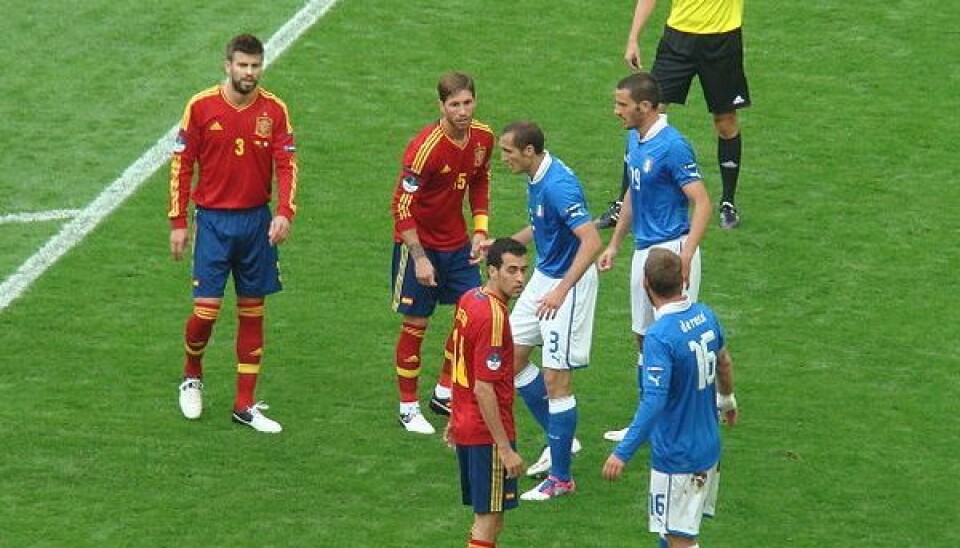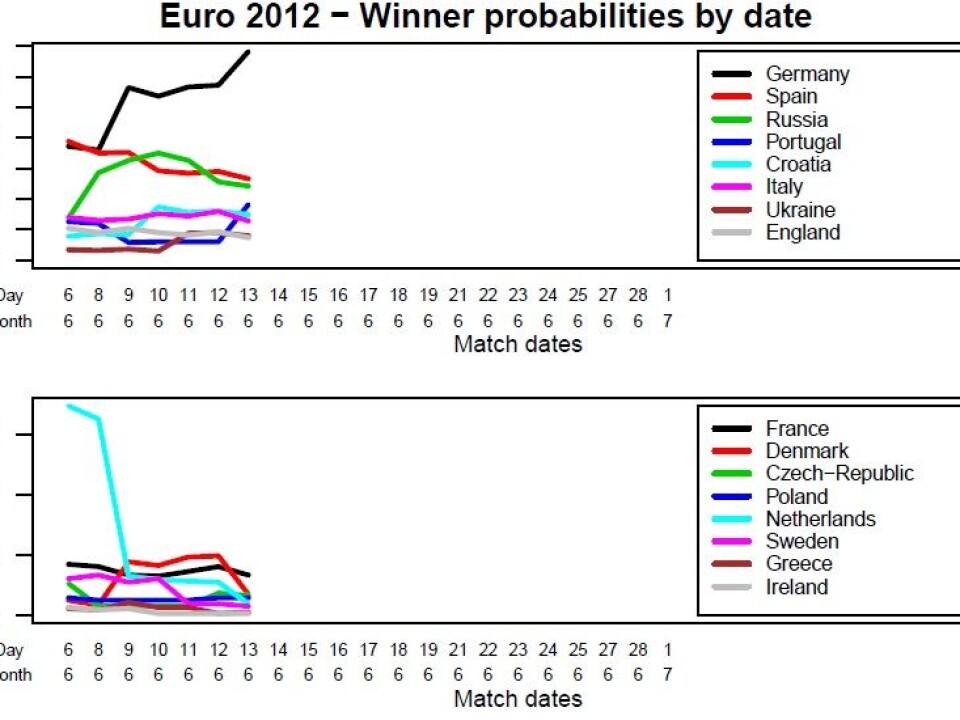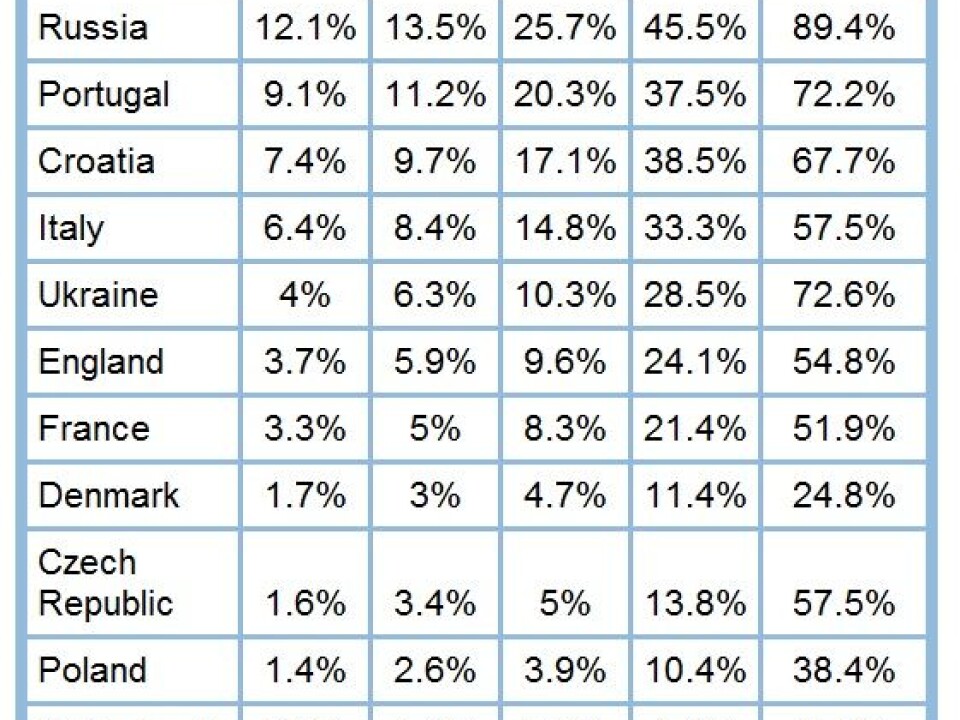This article was produced and financed by Norwegian Computing Center

Which team wins EURO 2012?
There is a lot of randomness in football, also in a tournament like the 2012 UEFA European Football Championship. But is it possible to accurately calculate the winning chances for each team?
Denne artikkelen er over ti år gammel og kan inneholde utdatert informasjon.
It is a well known fact that there is randomness in each football match, and even in a tournament as EURO 2012.
The football enthusiasts discuss the number of goal chances in each match and how many of these that lead to a goal, they look at previous results, and the track records of different players.
But is it possible to find the probability for the result of a football match and the probability for success in a tournament?
This is a question of great interest for many football fans and bookmakers during ongoing EURO 2012.

In every European and World Championship since 1998, Norwegian Computing Center has calculated the probabilities for success for each of the teams.
Before the tournament started, Spain and Germany had the best chances, slightly less than 20 percent for winning.
The first matches improved Germany’s (28.3 percent) and Russia’s (16.3 percent) chance and weakened Spain’s (14.2 percent) and the Netherlands’ (2.2 percent) chance to win the championship.
Experts and enthusiasts
Before EURO 2012 started, twelve football enthusiasts, selected in cooperation with Norwegian Broadcasting Corporation, have evaluated the strength of each of the participating sixteen teams.

The enthusiasts are asked what they think will be the results of potential matches between the sixteen teams. These results are used in order to find the strength of each team. The strength is represented as a number that is adjusted for each match the team plays. It is increased if the team has a better result than expected and reduced otherwise.
In the first matches, the enthusiasts’ opinion dominates, but later in the tournament the results in the tournament so far dominates. The strongest team in each match has a larger probability for winning, but there is a considerably randomness in each match. The probabilities for each team are shown in the table below.
The opinion of the enthusiasts’ is an important input to the table. But the division of teams in groups and the setup of the second round also have influence.
The matches are played 10 000 times
Before the tournament starts and each evening during the tournament, each match in the remaining of the tournament is “played” 10 000 times. Each of these virtual results follows all the details in the regulation of EURO 2012.
It finds the winner and second place in each group depending on the number of points and the internal matches between the involved teams.
If these are equal, the ranking in the group is determined by all the matches in the group, results in previous championships, fair play conduct and finally drawing lots. If there is a draw in a match in the second round, there is first two extra periods of fifteen minutes and then penalties that determine the winner.
Updates of the probabilities each day
During the tournament updated probabilities are published at the web page em.nr.no/indexEng.html each night. Here, it is possible to follow updated winning probabilities: http://em.nr.no/WinnerChancesDateEM2012.pdf
There is a large number of papers in the statistical literature in this topic. Many different people want to read predictions on winning teams, those who want to bet or watch or both.
But most scientists working in this field are only in it for the fun. The probabilities are calculated by a methodology developed by chief scientist Magne Aldrin from Norwegian Computing Center.
Scientific links
- Aldrin, M. and Løland, A (2012): Euro 20.12%. Significance, Royal Statistical Society, June 11, 2012.
- Lee, A. (1997): "Modeling Scores in the Premier League: Is Manchester United Really the Best?", Chance, Vol. 10, p. 15-19

































